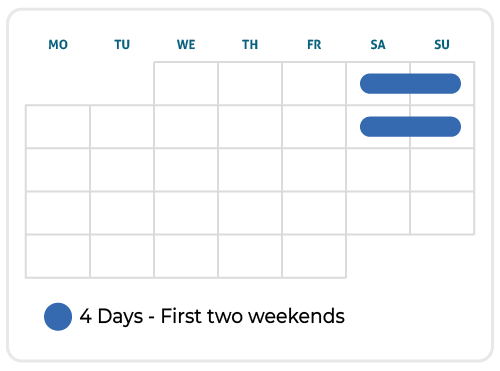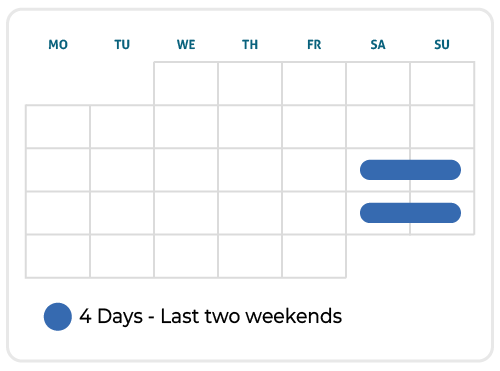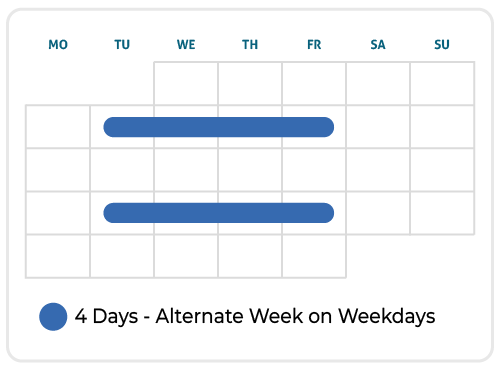Angular Certification Course Overview
You've toyed with basic frameworks. You've followed tutorials that result in toy applications that crash under real-world load. Meanwhile, professionals who command Angular's component lifecycle, performance tuning, and complex routing are solving high-stakes problems in Buffalo, NY financial services and major IT firms in Pune and Chennai, earning 40% more. Your current, superficial knowledge makes you a risk; this certification makes you a strategic asset. This is not another course that teaches you to memorize directives and syntax. Our program is engineered by senior full-stack architects who understand the brutal reality of Buffalo, NY enterprise development: legacy backend systems, impossible performance benchmarks, and aggressive deadlines. They built this program to teach you the hard parts of Angular: Dependency Injection, the real-world utility of RxJS Observables, and how to structure a large application that doesn't collapse into component sprawl. Certification mills focus on passing the exam by rote. We focus on building architectural competence. You'll learn how to implement effective NgRx/state management to prevent impossible-to-debug data flow issues, master lazy loading to hit crucial Lighthouse performance scores, and write rigorous unit and end-to-end tests that stop regression defects before they cost your project days of rework. The exam is the necessary validation; the real value is delivering frontends that scale to millions of users. This is built for working developers in Buffalo, NY who are tired of being pigeonholed as backend or legacy coders. Our weekday evening and weekend batches are highly focused. You get a fully architected reference application, reusable code scaffolding for common patterns, 24/7 expert support, and project assessments designed to prove you can solve real-world production bugs.
Angular Certification Training Highlights
Architect-Led Training
Learn from seasoned Angular consultants and full-stack architects with a minimum of 7 years of high-volume application development experience.
Master Complex RxJS
Conquer the most challenging part of Angular - reactive programming - through dedicated modules and practical problem-solving labs.
Performance Optimization Focus
Heavy emphasis on Change Detection, AOT Compilation, and Lazy Loading to ensure your code is fast, not just functional.
Exhaustive Practice Materials
Drill your knowledge with 2000+ targeted coding challenges and realistic, timed certification exam simulators.
Component Testing Bootcamp
Mandatory training in writing maintainable Jasmine/Karma unit tests and Protractor/Cypress E2E tests - a non-negotiable industry requirement.
24x7 Expert Guidance & Code Review
Eliminate debilitating coding roadblocks instantly with dedicated support channels staffed by certified Angular architects.
Corporate Training

Ready to transform your team?
Get a custom quote for your organization's training needs.
Upcoming Schedule



Skills You Will Gain In Our Angular Certification Training Program city83647
Advanced Component Architecture
Learn to structure your application using Smart/Dumb components and module federation to enforce clean separation of concerns, which is critical for large-scale application maintenance.
Reactive Programming with RxJS
Stop using Promises for everything. Master Observables, Subjects, and advanced RxJS operators to handle complex asynchronous data streams, manage state, and prevent debilitating memory leaks.
Component Lifecycle Control
Understand the eight component lifecycle hooks. Know exactly when to fetch data (ngOnInit), optimize performance (ngDoCheck), and safely tear down resources (ngOnDestroy) to write clean, stable code.
Dependency Injection (DI) Mastery
Move beyond basic providers. Master the hierarchical injector system, tokens, and use factory providers to manage complex service dependencies and create highly testable components.
Angular Router & Guards
Build robust navigation with complex nested routes. Master Route Guards (CanActivate, CanDeactivate) to enforce crucial authentication and authorization logic on the client-side.
Performance Tuning & Optimization
Learn to implement OnPush Change Detection, lazy loading of modules, and Ahead-of-Time (AOT) compilation to drastically cut application load times and improve perceived performance.
Who This Program Is For
Junior/Mid-Level Front-End Developers
Full-Stack Developers
UI/UX Designers (with coding experience)
Software Architects
Technical Leads
Engineering Graduates
If you lead projects and meet PMI's mandatory experience requirements, this program is engineered to get you certified.
Angular Training Program Roadmap
Why Get Angular Certified?
Stop Getting Filtered by Specific Job Demands
Stop getting filtered out by firms demanding "proven experience with enterprise framework architecture" for senior developer roles.
Unlock Specialized Salary Bands and Bonuses
Unlock the specialized salary bands and retention bonuses reserved for developers who can deliver high-volume, performance-critical front-ends.
Transition to Architectural Contributor
Transition from a tactical coder to an architectural contributor, gaining the authority to influence technology choices and design strategy.
Eligibility & Prerequisites
The Certified Angular Developer credential is not for those who simply can code; it is for those who can architect and optimize. While there are no formal, mandatory prerequisites like years of experience for enrollment, the exam validates deep practical competence.
Formal Training: Completion of a comprehensive, 60+ hour training program that covers TypeScript, Angular architecture, RxJS, and application testing. (Fully satisfied by this iCert Global course).
Project Proficiency: Demonstrated ability to complete an end-to-end Single Page Application (SPA) that includes component hierarchy, routing, service integration, and forms validation.
Exam Readiness: Achieve a passing score on the final certification examination, validating a candidate's architectural and performance optimization knowledge.
Do not attempt this certification if you cannot confidently explain the difference between a Promise and an Observable.
Course Modules & Curriculum
Lesson 1: Dependency Injection (DI) and Services:
Master the Dependency Injection system - the architectural backbone. Learn to create stateless, reusable services and inject them efficiently into components via the hierarchical injector.
Lesson 2: Directives and Custom Behavior:
Go beyond NgIf and NgFor. Master Attribute and Structural Directives. Learn how to create custom directives to encapsulate and reuse DOM manipulation logic.
Lesson 3: Pipes and Data Transformation:
Master built-in pipes for date and currency formatting. Learn to create custom, pure, and impure pipes to handle data transformation within templates efficiently, avoiding unnecessary component logic.
Lesson 1: Forms and Validation:
Master both Template-Driven and Reactive Forms. Focus heavily on Reactive Forms for complex validation scenarios, custom validators, and creating dynamic form arrays/groups.
Lesson 2: Angular Routing Architecture:
Master defining complex routes, nested routes, and route parameters. Implement Route Guards (CanActivate, CanDeactivate) to protect application access and manage navigation flow professionally.
Lesson 3: HTTP, Promises, and Observables Introduction:
Understand the fundamental shift from Promises to Observables. Learn to use the HttpClientModule to communicate with RESTful APIs, handling request, response, and error paths.
Lesson 1: RxJS Operators and Asynchronous Data Flow:
Deep dive into core RxJS: map, filter, switchMap, and mergeMap. Learn to manage multiple API calls sequentially and concurrently, preventing data race conditions and messy subscription chains.
Lesson 2: State Management Architecture:
Understand the pitfalls of component-based state. Learn the basics of a Redux/NgRx pattern to establish a single source of truth, making your application state predictable and debuggable.
Lesson 3: Performance Optimization (AOT, Lazy Loading):
This is non-negotiable for large applications. Master Ahead-of-Time (AOT) compilation and Lazy Loading of modules to ensure your application bundle size is minimal and its load time is fast.
Lesson 1: Application Security Best Practices:
Understand Angular's built-in security features. Learn to prevent Cross-Site Scripting (XSS) and properly handle user tokens and credentials, a common failing point in junior developer code.
Lesson 2: Deployment and Production Environment:
Master the Angular CLI build process for production. Learn the basics of deploying to common cloud services and using environment files to manage production vs. development configurations.
Lesson 3: Unit Testing and End-to-End Testing:
Conquer the test environment. Master Jasmine and Karma for unit testing components, services, and pipes. Learn the principles of End-to-End (E2E) testing to ensure overall application flow integrity.





